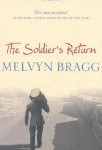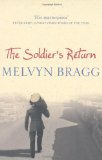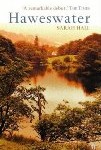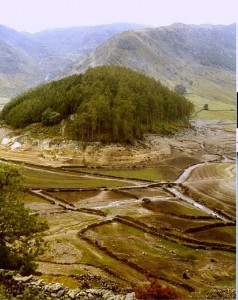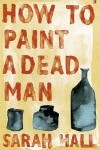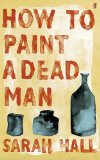Five words from the blurb: returns, war, Burma, Cumbria, changed
Last month I read A Division of the Light which had endorsements on the cover from both Kazuo Ishiguro and Melvyn Bragg. I’m already a big fan of Ishiguro, but despite my love for Cumbrian books I hadn’t tried any Bragg before. David, a regular commenter on this blog, recommended The Soldier’s Return trilogy, so I reserved a copy from my local library. I’m so pleased I did as Melvyn Bragg has just gone onto my “must read everything they’ve ever written” list.
The Soldier’s Return begins in 1946 with Sam returning to his hometown after witnessing horrific events in the war in Burma. Wigton, Cumbria is exactly as he left it four years earlier, but his six-year-old son doesn’t know him and his wife has developed an independence that he finds difficult to deal with. This absorbing book shows how Sam adjusts back into civilian life and how a family copes when no one is the same as they once were.
This book is amazingly well written. The intense emotions were beautifully described and I could sympathise with every character in the book.
Sam hesitated, trying to settle in himself the disturbing confusions of his return. The dreams of home were tinged with dread. The place below could suck him in, the old world close over him. Nothing had changed in the town that he could see. Yet his whole world had changed.
The descriptions of Cumbria were wonderfully accurate. I don’t know Wigton very well, but Carlisle was frequently mentioned and many of the landmarks were familiar to me. This historic nostalgia will be an added bonus for anyone familiar with these northern towns, but aren’t essential for loving this book.
I can’t fault The Soldier’s Return at all. My only reason for not awarding 5 stars is because the plot was a bit quiet for me. It is a perfect character study and I don’t think I’ve read a book where each person is so fully developed that I can predict the conversations they’d have and the likely outcomes. I don’t understand why this book isn’t that well known. It deserves to be a modern classic, studied in schools and read by everyone.
I’ve read lots of books about the horrors of war, but this quiet, reflective book brings home a message that is just as important. Survivors have to live with their emotional scars for the rest of their lives and once you’ve seen the terrible way in which humans can treat each other nothing is the same again.
Highly recommended.

.
Have you read any of Melvyn Bragg’s books?
